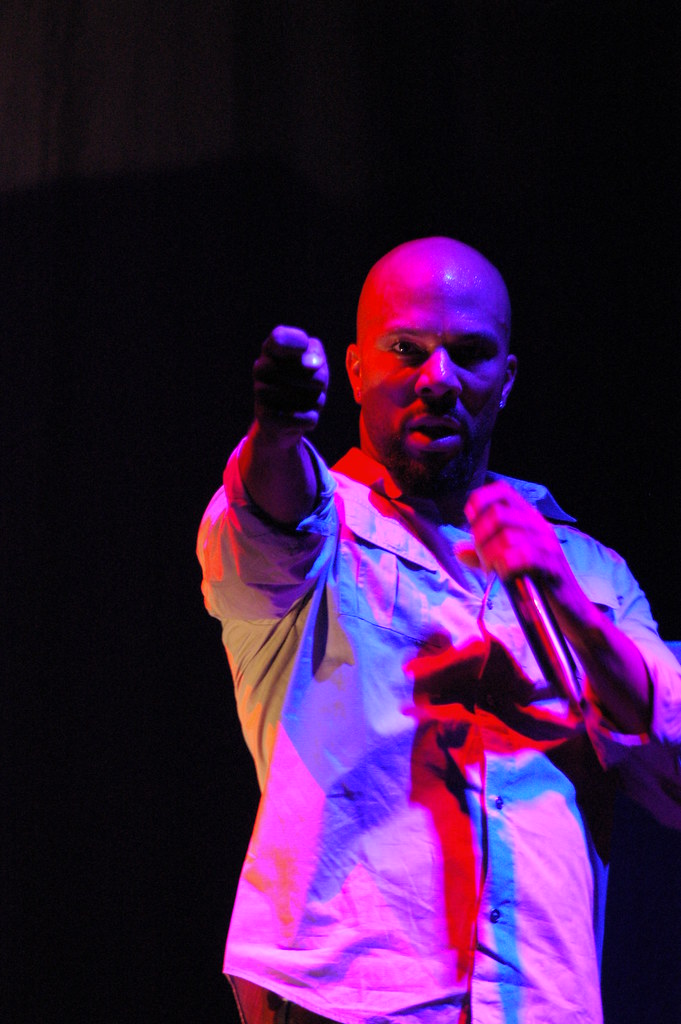
Common, the multi-hyphenate artist born Lonnie Rashid Lynn, has carved an extraordinary path through the landscape of hip-hop, film, and social activism. For decades, he has captivated audiences with his lyrical prowess, compelling acting performances, and unwavering commitment to making a positive impact on the world. His journey is a testament to artistic integrity, continuous evolution, and a relentless pursuit of purpose that transcends the conventional boundaries of celebrity.
From the streets of Chicago to the bright lights of Hollywood and the hallowed halls of the White House, Common’s career has been marked by a series of transformative moments and bold creative choices. He has consistently pushed the envelope, both musically and personally, demonstrating a rare ability to adapt and thrive while staying true to his core values. His story is not just one of awards and accolades, but of a profound human connection forged through art and advocacy.
We’re about to delve into some of the most compelling aspects of Common’s incredible trajectory, uncovering twelve key elements that define his legacy. Prepare to be inspired by the depth of his talent, the breadth of his achievements, and the quiet power of a man who truly embodies the essence of his stage name. Let’s explore the multifaceted world of Common, where every turn reveals another layer of genius and dedication.
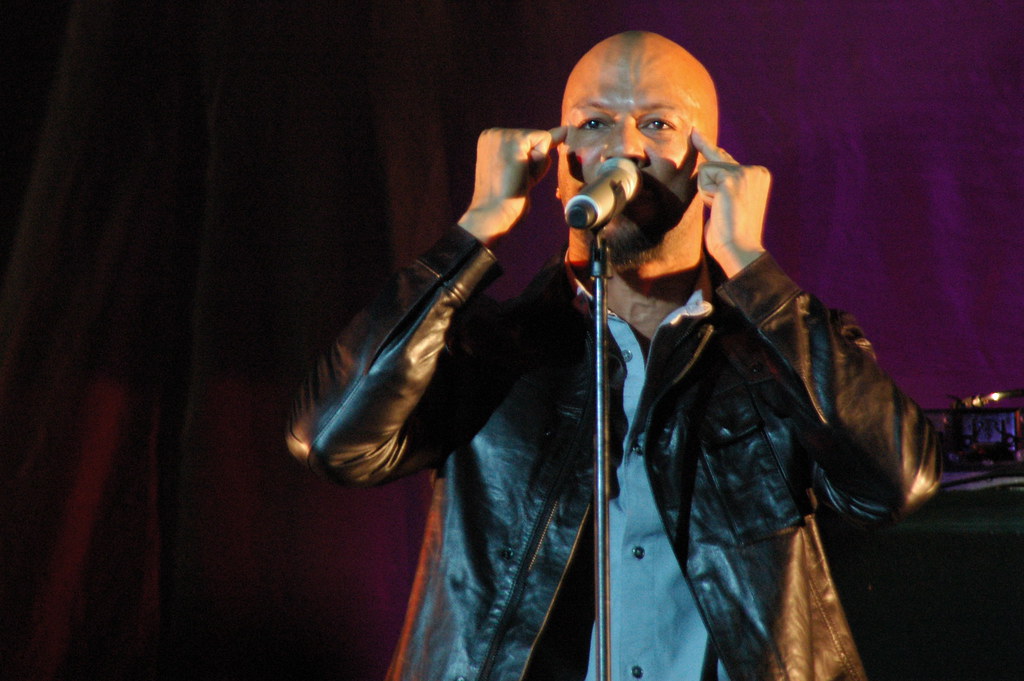
1. **His Humble Beginnings and Name Evolution**Lonnie Rashid Lynn, born on March 13, 1972, in Chicago’s Hyde Park neighborhood, began his life journey as the son of educator Mahalia Ann Hines and former ABA basketball player Lonnie Lynn. His family roots ran deep, with his first name being shared across five generations, a detail that hints at a strong sense of heritage and identity. Growing up in the Calumet Heights neighborhood, he was known to family and friends by his middle name, Rashid, offering a glimpse into the personal side of the artist before his public persona emerged.
His early life was not without challenges; his parents divorced when he was six, and his father, despite struggles with addiction, remained an active presence, even securing Lynn a job with the Chicago Bulls as a teenager. These formative experiences undoubtedly shaped his perspective, instilling a resilience that would serve him well in the demanding world of entertainment. His education at Florida A&M University, where he studied business administration, further equipped him with a foundational understanding that would later prove invaluable in managing his burgeoning career.
Lynn’s entry into the rap scene began in the late 1980s while he was still a student at Luther High School South. He formed a rap trio named C.D.R. with two friends, even opening for renowned acts like N.W.A and Big Daddy Kane. When C.D.R. disbanded by 1991, he embarked on a solo career, initially adopting the stage name Common Sense. This moniker reflected his lyrical approach, characterized by introspection and social commentary, and set the stage for the artist he would become. However, a legal challenge from an Orange County reggae band with the same name eventually compelled him to shorten it to simply Common, a name that would soon become synonymous with conscious hip-hop.
Read more about: Jessica Biel’s Journey: Unpacking the Gorgeous Transformation of an A-List Icon Through the Years
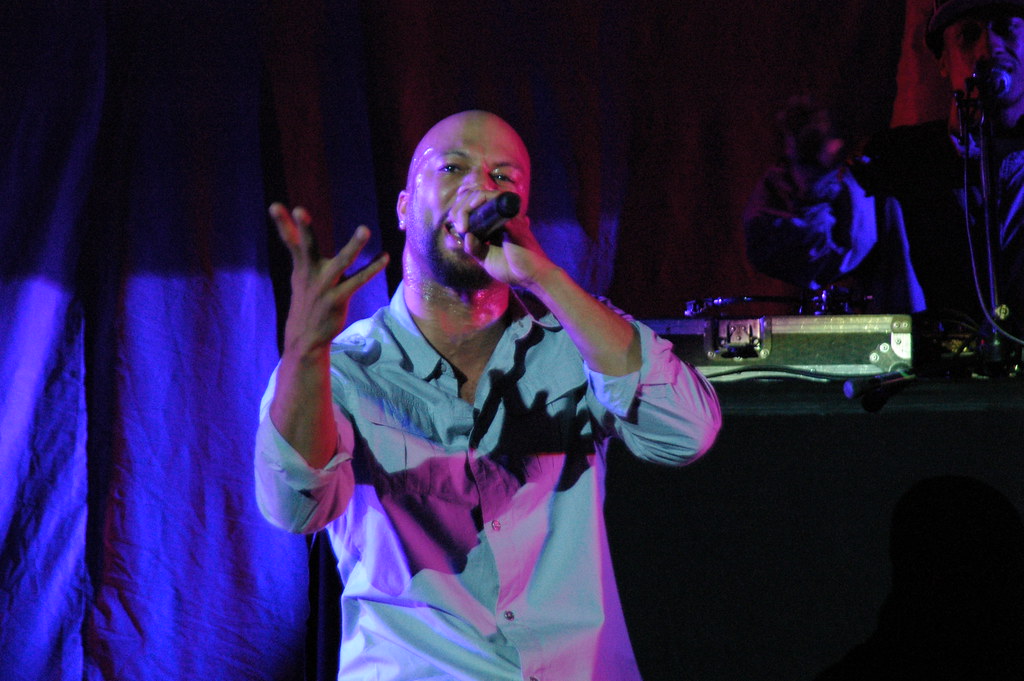
2. **The Resounding Success of *Resurrection* and Early Acclaim**After debuting as a solo artist in 1992 with the single “Take It EZ” and the album *Can I Borrow a Dollar?*, Common Sense truly began to solidify his presence in the hip-hop world with the release of his 1994 album, *Resurrection*. This record garnered significant critical acclaim, extending his reach beyond the confines of the Chicago music scene and establishing him as a potent voice in alternative and underground hip-hop. The album sold relatively well for its time, cementing his reputation among a dedicated fanbase.
*Resurrection* also marked a significant collaboration, being Common Sense’s last album produced almost entirely by his long-time partner, No I.D., who would later become a mentor to none other than Kanye West. This partnership laid a crucial groundwork for Common’s distinctive sound and lyrical depth. The album’s impact was not merely musical; it also played a role in social awareness, as Common Sense contributed to the Red Hot Organization’s compilation CD, *America Is Dying Slowly (A.I.D.S.)* in 1996, a project aimed at raising awareness of the HIV/AIDS epidemic among African American men.
One of the most notable tracks from *Resurrection* was “I Used to Love H.E.R.,” a poignant metaphor for hip-hop music that, perhaps unintentionally, ignited a widely publicized feud with West Coast rap group Westside Connection. The song’s criticism of the direction hip-hop was taking was interpreted by some as an attack on the burgeoning popularity of West Coast gangsta rap. This led to a lyrical back-and-forth, including Westside Connection’s “Westside Slaughterhouse” and Common Sense’s fierce response, “The Bitch in Yoo.” The dispute ultimately concluded with a meeting facilitated by Louis Farrakhan, showcasing not only the intensity of the rivalry but also the potential for resolution within the hip-hop community.
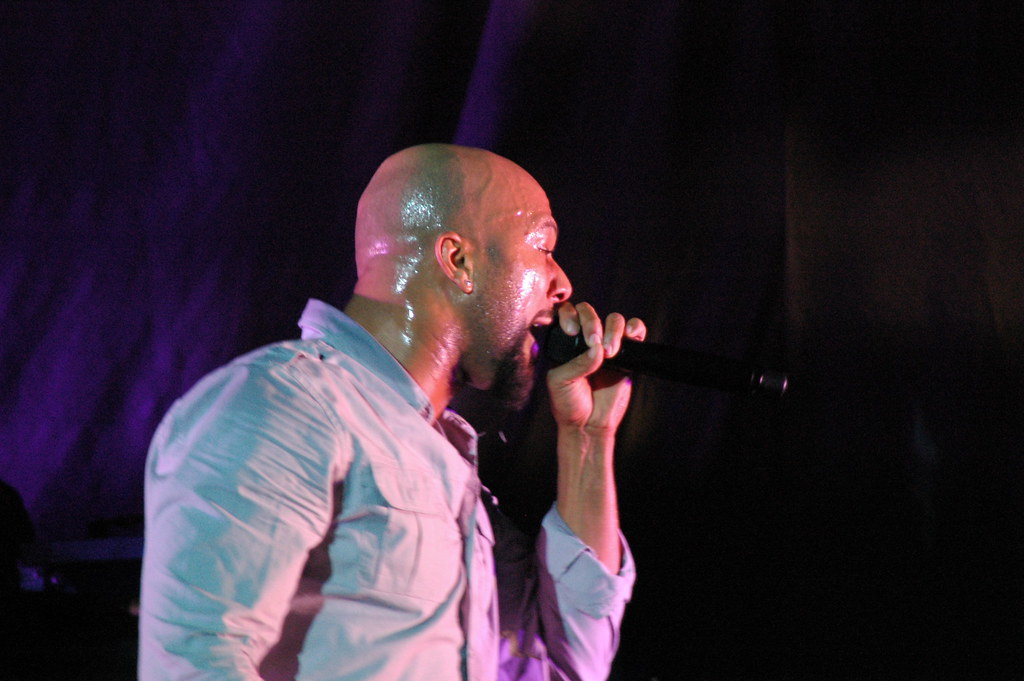
3. **The Soulquarians Era: A Creative Leap with *Like Water for Chocolate***Following the critical success of *One Day It’ll All Make Sense*, Common took a pivotal step in his career by signing a major label record deal with MCA Records and relocating from Chicago to New York City in 1999. This move placed him at the heart of a vibrant musical collective known as the “Soulquarians,” a loose group of musicians and artists centered around Questlove. Collaborating almost exclusively with these innovative minds throughout 1999, Common’s artistic vision began to expand and evolve dramatically.
The fruits of this collaboration were gloriously displayed in 2000 with the release of his fourth album, *Like Water for Chocolate*. This album was met with mass critical acclaim and became a significant commercial breakthrough for Common, earning him his first gold record. Executive produced by Questlove and featuring substantial contributions from the legendary J Dilla, the album greatly expanded Common’s fanbase and cemented his reputation as a versatile and profound artist capable of pushing hip-hop’s boundaries. The synergy between Common and J Dilla, both hailing from the Great Lakes region, was undeniable, even leading to their collaboration on “Thelonius,” a track that appeared on both Slum Village’s *Fantastic, Vol. 2* and Common’s own album.
*Like Water for Chocolate* saw Common delving into themes and musical styles that were considered uncommon for a hip-hop record at the time. Tracks like “Time Travelin’ (A Tribute To Fela)” showcased his homage to Nigerian music legend and political activist Fela Kuti, demonstrating a global consciousness and a willingness to draw from diverse influences. The album also produced one of his most popular singles, “The Light,” which earned a Grammy Award nomination, further solidifying its place as a landmark release in his discography and a testament to the powerful creative energy of the Soulquarians era.
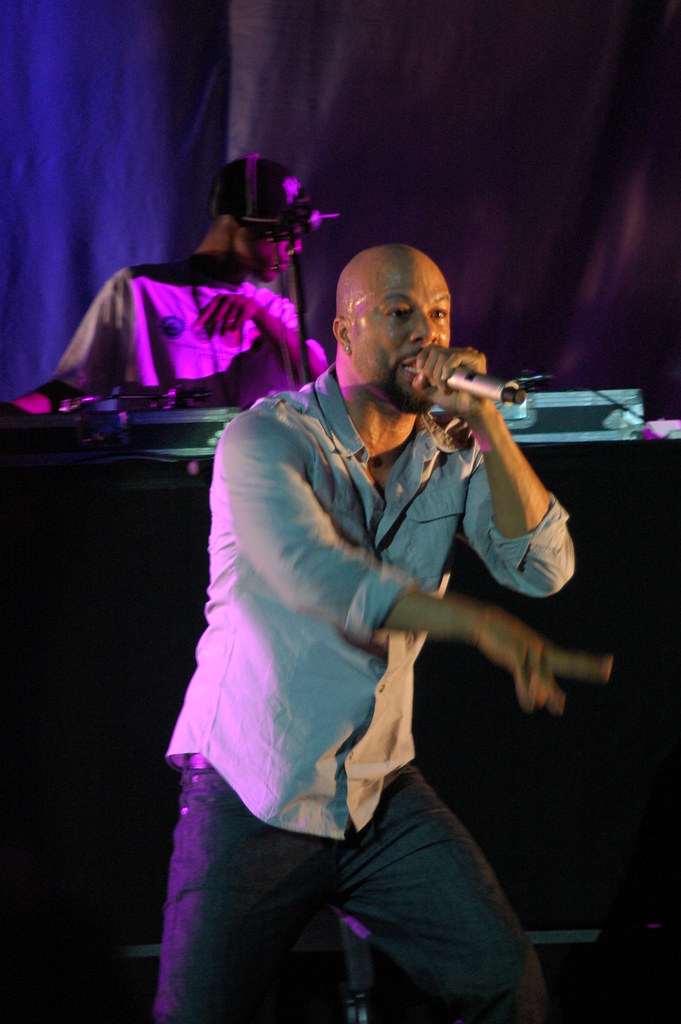
4. **Embracing Experimentation with *Electric Circus***In 2002, Common unveiled his fifth album, *Electric Circus*, a project that represented a bold departure from his previous works and truly showcased his fearless approach to artistry. This album was highly anticipated and initially praised by many critics for its ambitious vision, signaling a new chapter in his musical evolution. However, its experimental nature also proved to be a double-edged sword, making it less commercially successful than its predecessor, *Like Water for Chocolate*, with sales falling below 300,000 copies.
*Electric Circus* was a true eclectic fusion, blending elements of hip hop, pop, rock, electronic music, and neo-soul. This genre-bending approach divided critics, with some commending its visionary scope and others critiquing it for the very same reason. The core of the criticism often revolved around the album’s experimental sound, with some feeling that Common had ventured too far from the familiar style that had defined his earlier, more universally acclaimed work. Despite the mixed commercial reception, the album stands as a significant marker of Common’s willingness to challenge conventional genre expectations.
This period also saw Common continuing his collaborative spirit, appearing as a guest performer on fellow Soulquarian Bilal’s *Love for Sale* album, where he contributed to a remake of Fela Kuti’s 1977 song “Sorrow, Tears & Blood.” Bilal, in turn, featured on *Electric Circus*, marking one of many future collaborations between the two artists. *Electric Circus* ultimately served as Common’s second and final album for MCA, and notably, the label’s last release before its absorption into Geffen Records, closing a chapter on both the artist’s and the label’s journey.

5. **The Powerhouse Partnership with Kanye West and GOOD Music**A pivotal shift in Common’s career occurred in early 2004 when he made a guest appearance on fellow Chicagoan Kanye West’s multi-platinum debut album, *The College Dropout*, on the track “Get Em High.” This collaboration was more than just a feature; it signaled a new and incredibly fruitful partnership. Soon after, Common announced his signing to West’s then-newfound record label, GOOD Music, a move that would redefine his mainstream presence and critical appeal. West, a longtime admirer of Common, had even engaged in a friendly on-air MC battle with his lyrical idol, playfully teasing him for “going soft” and his sartorial choices.
The creative synergy between the two Chicago artists was immediately apparent. Common’s next album, *Be*, released in May 2005, was almost entirely produced by Kanye West, with additional invaluable contributions from Common’s longtime collaborator James Yancey (J Dilla), who was also a favorite of West. The album was a resounding success, propelled by West’s involvement and the strength of singles like “The Corner” and “Go.” *Be* not only earned Common his second gold record but also achieved impressive sales of around 800,000 copies, garnering near-perfect ratings from esteemed publications like The Source and XXL, and receiving four Grammy Award nominations in 2006.
The momentum continued with Common’s seventh LP, *Finding Forever*, released on July 31, 2007. This album further solidified his partnership with Kanye West, who continued his production duties alongside other talented producers such as Will.i.am. *Finding Forever* debuted at No. 1 on the national Billboard 200 charts, a significant milestone for Common. While it was nominated for Best Rap Album at the 2008 Grammys, losing to West’s *Graduation*, Common did secure his second Grammy for “Southside,” winning Best Rap Performance by Duo or Group, cementing this era as a period of immense growth, collaboration, and mainstream recognition.
Read more about: Unlocking the ‘Garage’ of Genius: Exploring the Rare Classics and Unique Talents of Icons Named Jay
6. **Academy Award Win for “Glory” and Pivotal Role in *Selma***Beyond his formidable music career, Common has carved out an equally impressive presence in the world of film and television, demonstrating a remarkable versatility as an artist. A defining moment in his acting and songwriting journey came with the 2014 film *Selma*, where he not only co-starred as the influential civil rights leader James Bevel but also co-wrote the powerful and critically acclaimed song “Glory” with John Legend. This collaboration became an anthem for justice and equality, resonating deeply with audiences and critics alike.
The impact of “Glory” was profound, culminating in Common and John Legend winning the Academy Award for Best Original Song, a monumental achievement that transcended the music industry and placed him firmly in the pantheon of cinematic excellence. This Oscar win was not merely a personal triumph but a significant cultural moment, highlighting the power of art to inspire and inform social change. It showcased his ability to lend his artistic voice to important historical narratives, bringing authenticity and emotional depth to his portrayal of a pivotal figure in the Civil Rights Movement.
His role in *Selma* was not an isolated venture into acting; it was a culmination of years of dedicated work in film and television, which began with his big screen debut in *Smokin’ Aces* (2006) and included supporting roles in acclaimed films such as *American Gangster* (2007) and *Wanted* (2008). The success of *Selma* and the Oscar win for “Glory” not only solidified his credentials as a serious actor but also underscored his capacity to contribute to meaningful storytelling across different artistic mediums, making him a true force in both music and cinema.
Common’s journey from a celebrated hip-hop artist to a global icon exemplifies his boundless creativity and unwavering commitment to various art forms and social causes. Having explored his musical foundations and his initial strides into the film world, we now turn to the incredible breadth of his achievements beyond the recording studio. His story continues to unfold, revealing a profound dedication to acting, thoughtful ventures into literature and entrepreneurship, and a powerful voice in activism, all while continuously innovating his musical sound.
7. **Expanding His Cinematic Horizon: A Diverse Acting Portfolio**While “Glory” and *Selma* marked a significant turning point, Common’s acting career had been steadily building, showcasing remarkable versatility. His big screen debut arrived in 2006 with the crime film *Smokin’ Aces*, where he played the villainous Mob enforcer Sir Ivy. He quickly followed with supporting roles in acclaimed films like *American Gangster* (2007) and *Wanted* (2008), appearing alongside industry heavyweights and signaling his serious intent in Hollywood.
His range expanded across diverse genres. He showed a flair for comedy in 2010’s *Date Night*, starring with Steve Carell and Tina Fey, and in *Just Wright*, where he played a basketball player falling in love with his physical therapist, Queen Latifah. He even ventured into science fiction as John Connor’s lieutenant Barnes in 2009’s *Terminator Salvation*, proving his ability to adapt to various storytelling landscapes.
Common also made a significant mark on television, captivating audiences as Elam Ferguson in AMC’s western series *Hell on Wheels* from 2011 to 2014. This leading role allowed him to delve deeply into character development over multiple seasons. In film, he continued taking impactful roles, including a gangster in *Suicide Squad* (2016) and a professional hitman, Cassian, opposite Keanu Reeves in *John Wick: Chapter 2* (2017). His voice talents contributed to characters like Kiburi the crocodile in Disney Junior’s *The Lion Guard* and the Stonekeeper in *Smallfoot*.
More recently, Common challenged himself with critically acclaimed performances, such as his major role in Eva Vives’s debut feature *All About Nina* (2018). He also portrayed Starr’s uncle Carlos, a black police officer, in *The Hate U Give*. Further diversifying his artistic expression, he made his Broadway acting debut in the Pulitzer Prize-winning play *Between Riverside and Crazy* in 2023, proving no limits to his artistic exploration.

8. **The Pen and the Platform: His Literary Ventures**Beyond captivating performances, Common extended his creative reach into literature, offering intimate glimpses into his life and philosophy. In September 2011, he published his deeply personal memoir, *One Day It’ll All Make Sense*, through Atria Books. This reflective work detailed how his close relationship with his mother, Dr. Mahalia Ann Hines, profoundly influenced his life journey. It offered a unique perspective, partially narrated by her.
His literary pursuits encountered public scrutiny during a May 2011 White House poetry reading with First Lady Michelle Obama. Some of Common’s previous lyrical content, specifically “A Song For Assata” (referencing Assata Shakur) and a line about Mumia Abu-Jamal, drew significant criticism. These references, related to figures convicted of murdering police officers, sparked a controversy over artistic expression.
White House Press Secretary Jay Carney addressed the furor, stating President Obama, while opposing the specific lyrics, supported what Common broadly stood for. Common responded on Facebook, stating, “The one thing that shouldn’t be questioned is my support for the police officers and troops that protect us every day.” He later discussed the matter with Jon Stewart on *The Daily Show*, navigating the complex public perception with clarity.
His engagement with writing continued with his second memoir, *Let Love Have The Last Word*, released in May 2019. This follow-up offered further insights into his personal world. It highlighted his relationship with his daughter, Omoye, his romantic partnerships, and his parents. The book served as a profound exploration of his struggle to cement his perspective within the overarching concept of love.
Read more about: 14 Convertibles from the ’60s and ’70s That Made You Feel Like a Movie Star
9. **Entrepreneurship and Style: From Fashion to Film Production**Common’s influence extends well beyond entertainment and literature, encompassing fashion, branding, and film production. His distinctive style and approachable persona made him a natural fit for modeling. In 2006, he became a face for The Gap’s fall collection, appearing on posters, and later performed in their “Holiday in Your Hood” campaign. The following year, he signed with New Era to promote their Layers fitted caps, cementing his status as a style icon.
His presence in commercial advertising also grew. He starred in a TV commercial for the 2008 Lincoln Navigator, lending gravitas to the luxury brand. He was featured in an ad for Microsoft’s Zune, comparing his song “Universal Mind Control” to Afrika Bambaataa’s “Planet Rock.” Furthermore, he was part of the Diesel campaign for their “Only The Brave” fragrance, and “Be (intro)” was famously used in a BlackBerry commercial in 2011.
Demonstrating a keen eye for entrepreneurship, Common ventured into clothing design. In December 2008, he launched “Softwear,” a new clothing line developed in partnership with Microsoft. This unique collaboration was inspired by 1980s computing, offering a nostalgic yet fresh aesthetic. This endeavor showcased his understanding of branding and his desire to connect with audiences through various creative avenues.
One of his most significant entrepreneurial moves came in October 2015, when Common signed a two-year deal with HBO. This pivotal agreement allowed him to launch his own film production company, Freedom Road Productions, fulfilling a long-held career aspiration. Through Freedom Road, he served as an executive producer for *An American Girl Story – Melody 1963: Love Has to Win* in 2016, proving his commitment to shaping narratives both in front of and behind the camera.

10. **A Resounding Voice for Change: Activism and Social Justice**Common’s public persona is indelibly linked to his deep commitment to activism and social justice, an integral part of his identity. His dedication begins with personal choices; he is a staunch vegan and an outspoken supporter of animal rights. He actively works with organizations like PETA, appearing in print ads with “Think Before You Eat” and promoting vegetarianism in *Holistic Wellness for the Hip-Hop Generation*.
His advocacy extends to critical health and social issues. He actively participates in the “Knowing Is Beautiful” movement for HIV/AIDS awareness. Demonstrating political engagement, he was featured in the “Yes We Can” video supporting Barack Obama’s candidacy. Common also publicly pledged to eliminate anti-gay lyrics from his music, showcasing his evolution and commitment to inclusivity.
The Common Ground Foundation, a non-profit he founded, empowers underprivileged youth. It helps young individuals become contributing citizens and strong leaders through programs dedicated to leadership, education, and creative expression. The foundation also inaugurated the AAHH! Fest music festival in Chicago’s Union Park, fostering community and cultural vibrancy.
Common’s commitment to justice deepened after performing concerts in California prisons and at the State Capitol in 2017. These experiences inspired him to establish Imagine Justice, a non-profit for criminal justice reform. In May 2020, during the COVID-19 pandemic, Imagine Justice launched the #WeMatterToo campaign, collaborating with groups to highlight the severe threat to incarcerated populations.
His consistent presence at significant social justice events underscores his dedication. He appeared in the documentary *#Bars4Justice* and delivered a powerful opening performance at the March for Our Lives anti-gun violence rally in Washington, D.C., in 2018. He also performed at the 50th anniversary of Martin Luther King’s death in Memphis. He has actively supported political campaigns, including Kamala Harris’s 2024 presidential campaign, performing at the 2024 Democratic National Convention.

11. **Evolution of Sound: Post-GOOD Music Albums and Collaborations**Even as his acting and activism flourished, Common never truly stepped away from his musical roots, embarking on new sonic explorations after departing GOOD Music in 2011. This new phase saw his own label imprint, Think Common Entertainment, partner with Warner Bros. Records. This led to his ninth album, *The Dreamer/The Believer* (December 2011), an album notably produced entirely by his longtime collaborator, No I.D.
This period experienced lyrical skirmishes, particularly with the song “Sweet” from *The Dreamer/The Believer*. The track criticized rappers who sing, which was perceived as a diss by Canadian artist Drake. Drake responded with “Stay Schemin'”, sparking a publicized feud. Common swiftly responded, and the exchange concluded with him declaring, “It’s over. But it was all in the art of hip hop,” emphasizing mutual respect after the lyrical sparring.
Continuing his independent artistic journey, Common released his tenth solo studio album, *Nobody’s Smiling*, in July 2014. This album, also produced entirely by No I.D., marked his signing with Def Jam Recordings and No I.D.’s Artium Records. *Nobody’s Smiling* was deeply inspired by the pervasive violence in his hometown of Chicago, serving as a powerful “call to action” to address challenging conditions globally.
His eleventh studio album, *Black America Again*, released in 2016 under Def Jam Recordings, garnered widespread critical acclaim. This project continued tackling pressing social issues facing Black America, featuring an impressive roster of guest artists including Stevie Wonder, Bilal, and John Legend. *Black America Again* served as his final release on a major label, concluding an era of impactful social commentary.
12. **New Eras and Horizons: Jazz, Collaborations, and Continued Innovation**Common’s insatiable artistic curiosity led him to embrace new musical genres and collaborative ventures, pushing his sound further. In 2018, he announced the formation of a jazz group, August Greene, with Karriem Riggins and Robert Glasper. Their eponymous album, released via Amazon Music, showcased a refined, soulful sound, highlighting Common’s versatility and willingness to explore beyond traditional hip-hop.
His twelfth solo studio album, *Let Love*, arrived on August 30, 2019. Released through Loma Vista Recordings and Concord Records, this album delved into themes of love and connection, featuring a stellar lineup of guest artists like Daniel Caesar, Jill Scott, and Leon Bridges. Karriem Riggins primarily handled the production, with a notable contribution from the late J. Dilla on “HER Love.”
Common continued his prolific output with a two-part album series: *A Beautiful Revolution Pt. 1* (2020) and *A Beautiful Revolution Pt. 2* (2021). These albums are infused with powerful messages of hope, resilience, and social consciousness, featuring collaborations with PJ, Black Thought, and Lenny Kravitz. Primarily produced by Karriem Riggins, these projects solidified his dedication to creating music that inspires change and reflects the cultural climate.
Looking ahead, 2024 heralded another exciting chapter with *The Auditorium Vol. 1*, a collaborative album with legendary producer Pete Rock. The first single, “Wise Up,” generated considerable buzz. The full album has since been nominated for Rap Album of the Year at the Grammys, accumulating millions of streams on Spotify. This latest endeavor testifies to Common’s continuous innovation and steadfast dedication to impactful music.
**An Enduring Legacy of Art and Purpose**
From the poetic streets of Chicago to the glittering stages of Hollywood and the impactful frontlines of social change, Common has sculpted a career that defies easy categorization. He is not merely a rapper, an actor, or an author; he is a profound cultural architect. Every endeavor is imbued with a deep sense of purpose and an unwavering commitment to authenticity. His journey is a vibrant tapestry woven with lyrical brilliance, compelling performances, insightful narratives, and relentless advocacy. As he continues to evolve and inspire, Common stands as a beacon of artistic integrity and a powerful reminder that true success lies not just in accolades, but in the enduring impact one leaves on the world. His story is a testament to the transformative power of art when guided by a conscious heart and an unyielding spirit.







